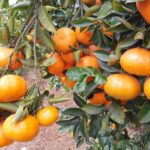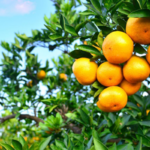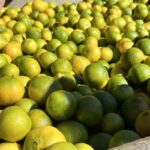Colombia: Citrus crops ravaged by yellow dragon

Municipal leaders of Santo Tomás and Palmar de Varela, Colombia, have urged for an agricultural calamity be declared in the Atlantic due to the devastating and widespread effects of citrus greening, also known as Huanglongbing (HLB) which means ‘yellow dragon’ in Mandarin, reports EL Heraldo.
The tropical fruit disease is bacterial and causes alterations in the size, shape and flavor of affected citrus.
"The trees still infected do not stop producing, but it happens that the fruit is not born with the same quality and that does not make it competitive with the market," the publication quoted the mayor of Santo Tomás explaining.
According to the publication, Santo Tomas and Palmar de Varela - the two areas with the highest citrus production in the Atlantic - have been impacted the most.
Lemon growers in the municipalities have suspended production on 1,270 hectares of crops that are diseased so far.
In Santo Tomás, growers produce approximately 60 metric tons (MT) per day from June to November. However, at present its production does not even reach 10 MT, indicated the municipality's mayor, Luis Escorcia.
"We supplied not only a large part of the country, but exported to Peru, Ecuador and sometimes to Chile.
"Today the situation we face does not allow us to reach these markets," the publication quotes the president saying.
HLB has also dealt a harsh blow to Palmar de Varela.
According to Mayor Félix Fontalvo, the disease has cost both municipalities' harvesters about US$36 million a day in production profits.
"They are families that have remained idle. The damage caused by this plague is irreversible. And its impact is reflected in the pocket of the small farmers who lived on this crop and who mostly have debts with the Agrarian Bank," El Heraldo quoted him saying.
ICA's solutions don't meet harvesters needs
The Colombian Agricultural Institute (ICA) says it has eradicated 19,900 plants suffering from HLB in the last year.
It has also offered a number of solutions moving forward.
According to the municipal leaders, though, the alternatives that the ICA has proposed do not respond to the harvesters' needs.
One proposed fix for example has to do with substituting the product for a new fruit. Yet the mayors say this is not viable for farmers. They point out that growers would have to wait several years for their new fruit to be economically productive.
During a meeting several environmental authorities held on the issue, they considered creating a work plan with plant health officials.
The plan would seek to define figures of the affected areas. This data would then be consigned in a technical sheet to best evaluate each of the municipalities' condition.
The environmental leaders should deliver the work plan on July 4, notes El Heraldo.
A further step will be to implement strategies with the Minister of Agriculture to deal with the HLB for 2019 through 2023.
The scope of HLB's impact
Of the 22 municipalities in the Atlantic, there are citrus plantations in 16 of them.
The secretary of Economic Development, Anatolio Sanchez, comments that this situation ignited the alarms to make a call to the National Government and, in this way, to find the formula to counteract the citrus disease.
"We are working to find solutions in the agricultural sector with all the entities, but above all looking for small producers to have access to financing and with these resources, they can implement good agricultural practices," the publication quotes him saying.













































